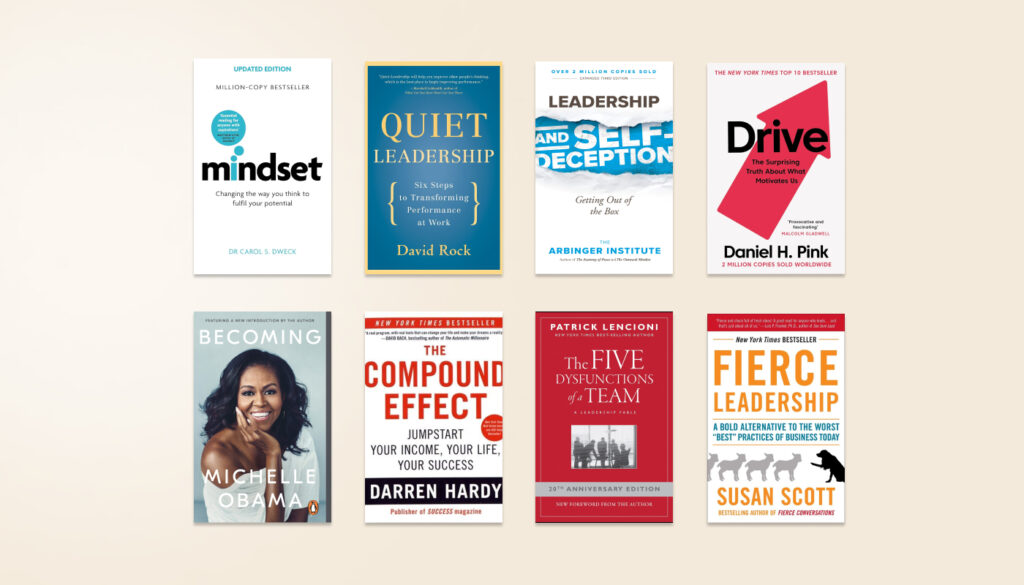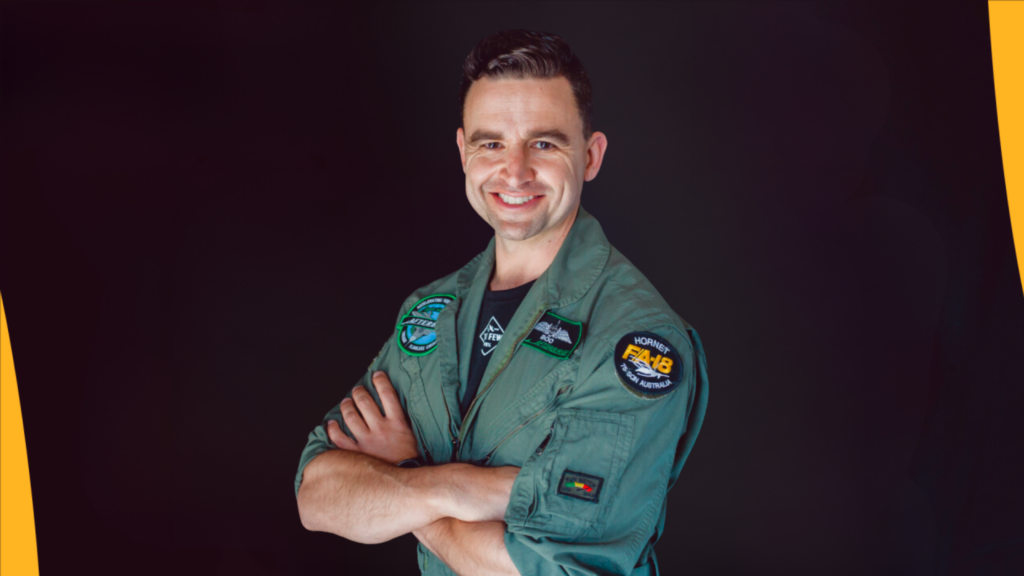Last week, as part of a leadership development program I was facilitating, I had the privilege of interviewing a very high-profile leader.
The theme of our one-hour Q&A session was Reflecting on Your Leadership Journey.
We had caught up over Zoom the week prior to the workshop so I could talk him through my proposed format for the discussion, and whilst I am certainly never a fan of scripting conversations like this, I had shared the types of questions I had planned to ask him on the day.
“Gosh you’re really getting me to reflect on my career here”, he’d said.
“That’s exactly the point of the exercise”, I had replied, excited for the participants to hear his stories from a 25-year career including stints in Europe, the USA, and Canberra.
Self-reflection is a key leadership skill, a powerful technique that helps leaders think back to past experiences, while also helping to plan for their future development.
And this was exactly the message I was hoping we would reinforce to the room full of leaders.
Although my own leadership career also spans 25+ years, I have to admit that I was somewhat in awe to be in the presence of my guest and humbled by the opportunity to play my role as talk-show host!
Whether you lead a small team, a larger team, or an entire organisation, self-reflection is crucial for improving your leadership mindset, for appreciating the impact you are having on those around you, and for planning the next phase of your journey.
As the session progressed and the conversation unfolded, I could see the minds of the participants ticking as they listened to some pretty inspirational tales. And whilst my role was to ask him the questions and to help steer the conversation along, there were definitely times when I found myself thinking of how I would answer the questions; what experiences I would share; and what advice I would offer the audience.
No matter how much experience you have had, take a moment to reflect on your own career as a leader, as I unpack the questions I posed to our guest.
What were your early experiences as a leader?
We can all think back to the early days of being a leader – whether those days were nearly 30 years ago, or three years ago. I know there are certainly moments from my career that I regularly flash back to – some successful and others definitely more in the ‘lessons learned’ category. But remember that all these moments have made you the leader you are today.
Who did you draw leadership inspiration from?
You may have been asked this question before, perhaps even in a job interview. I know I have asked it to hundreds of leaders over the years. There’s no right or wrong answer whether you have admired the leadership styles of Barack Obama, Margaret Thatcher, Steve Jobs, Queen Elizabeth II, Jacinda Ardern, Winston Churchill, your high school headmaster, or the captain of your netball team. As long as you can articulate what lessons you learned and what traits you have incorporated into your own leadership style.
Where did you seek leadership development from?
Our guest speaker has had several mentors throughout his career and continues to seek guidance from them today. I have personally had an executive coach for nearly 20 years, and she has always been my Yoda, my sounding board, and confidant. And without wanting to make this an overt plug, I would like to think that there are many leaders out there who receive leadership development from hellomonday.
What have been your biggest successes / failures as a leader?
My guest’s responses here showed an incredible amount of vulnerability and authenticity – both key attributes of some of the most successful leaders today. One thing he reinforced was that it can sometimes be a difficult process to take a truly honest look at yourself – particularly at your areas for improvement and admitting that you need to work on yourself and grow as you move along the leadership path.
He also mentioned Gibbs’ Model of Self-Reflection (see the image below) which was designed as a continuous cycle of improvement, and the importance of incorporating feelings and evaluation in the reflective process.

In summary, the six stages in Gibbs’ reflective cycle are:
- Description: What exactly happened
- Feelings: Your reactions and feelings
- Evaluation: What was good and what was bad
- Analysis: How you make sense of the situation
- Conclusion What you learnt specifically from the experience
- Action plan: What you’re going to do differently moving forward based on your learnings
What are your top three lessons / insights on leadership?
My guest referred to his Three C’s.
Care: He emphasized the importance of self-care and mental health – in particular knowing when to switch off and put the phone away. As he said these words, he jokingly pretended to throw his iPhone away, but it was to reinforce the need for downtime and being present for yourself, your family, and friends. Even at his level of seniority, he stressed that you can’t always be on, and that life is more than just work.
Competence: I admired his ‘confession’ here when he shared how he has spent over two decades trying to become a professional master, but that his core message here was understanding that even a leader (and ultimately responsible for thousands of people), it’s alright to make mistakes and to admit that you don’t always have the answer.
Conviction: Here, he talked about the power of self-motivation, drive and tenacity. We’ve written about this often-forgotten leadership skill previously. In a nutshell, self-motivation (and conviction) is all about identifying your purpose, taking pride in and feeling passionate about seeking new challenges, bouncing back and demonstrating optimism in the face of setbacks, and the relentless pursuit of learning and professional development.
What are you still working on today as a leader?
In closing, my guest focused on always embracing a growth mindset, on his relentless pursuit to continue learning, and on the power of trust and authenticity. “As a leader, I will never stop working on these”, he stressed, before receiving a standing ovation from the audience.
Thank you, Sir!
Remember, hellomonday can provide support to all leaders in the organisation, reinforcing habits through curated learning and impactful coaching, and ideally helping people appreciate the importance of reflecting on your leadership journey.
Frequently Asked Questions on reflecting on your leadership journey
Why is reflecting on your leadership journey important?
Reflecting on your leadership journey is important because it helps you identify your strengths, weaknesses, and areas for improvement. Regular self-assessment allows you to recognize patterns, learn from past experiences, and adapt your leadership style. By reflecting on your journey, you can make more informed decisions, enhance your personal growth, and become a more effective leader.
How can I start reflecting on my leadership journey?
To start reflecting on your leadership journey, consider the following steps: a. Set aside time; b. Journal your experiences; c. Ask for feedback; d. Identify patterns; e. Evaluate your progress.
What questions should I ask myself when reflecting on my leadership journey?
When reflecting on your leadership journey, consider asking yourself the following questions: a. What are my core values as a leader, and how do they align with my actions? b. What leadership successes am I most proud of, and what factors contributed to those successes? c. What challenges or failures have I encountered, and what lessons have I learned from them? d. How have I evolved as a leader over time, and what specific skills or qualities have I developed? e. What areas of my leadership can I continue to improve, and what steps can I take to grow and develop?
How can reflecting on my leadership journey benefit my team or organization?
Reflecting on your leadership journey can benefit your team or organization in several ways: a. Improved communication; b. Enhanced decision-making; c. Increased adaptability; d. Stronger relationships; e. Higher performance.
How can I incorporate reflection into my ongoing leadership development plan?
To incorporate reflection into your ongoing leadership development plan: a. Schedule regular reflection periods; b. Use a variety of reflection techniques; c. Seek external input; d. Set SMART goals; e. Monitor your progress.




